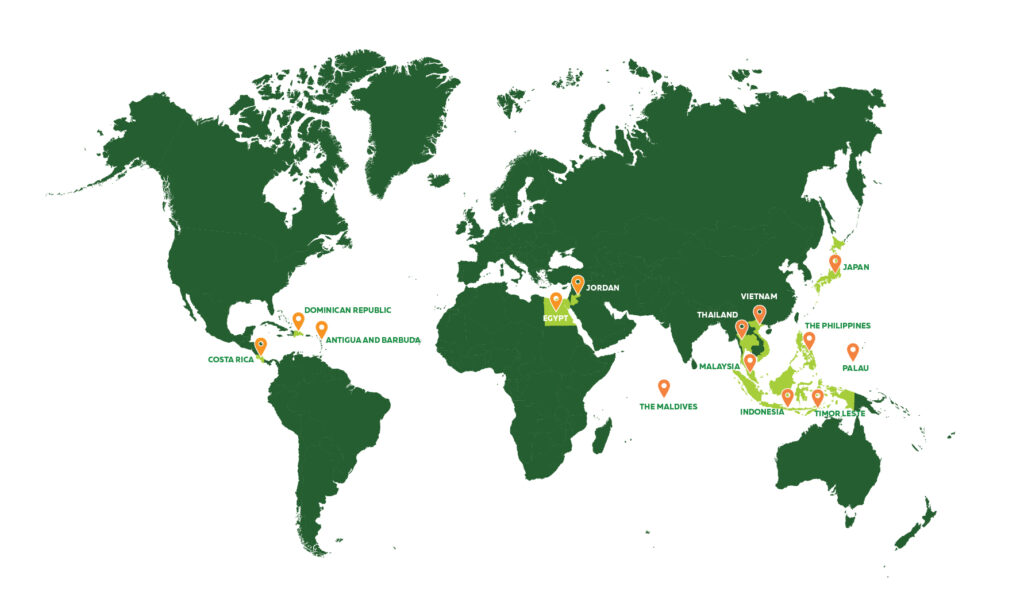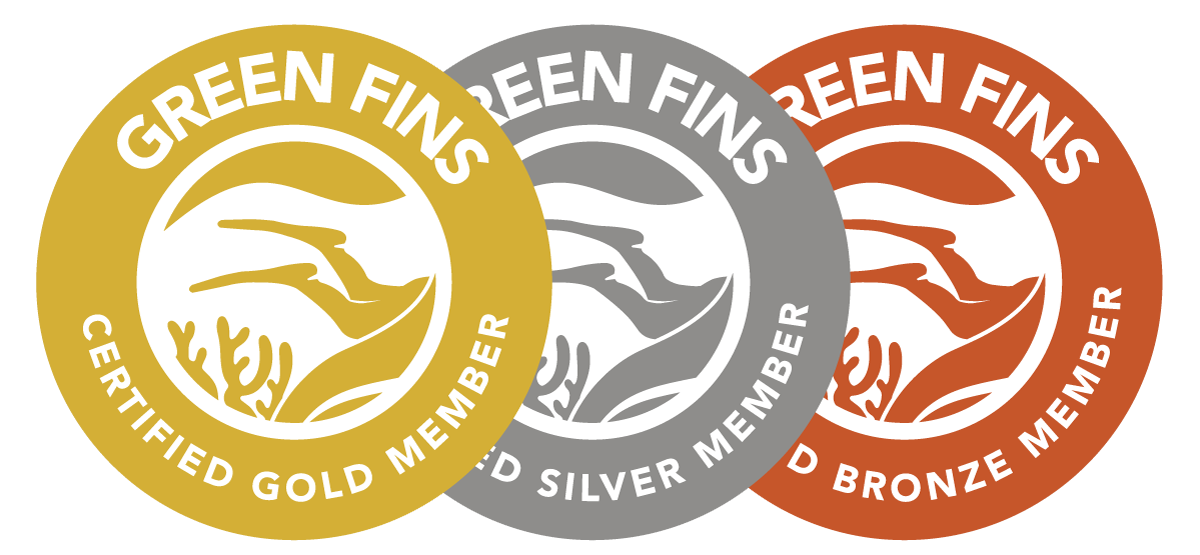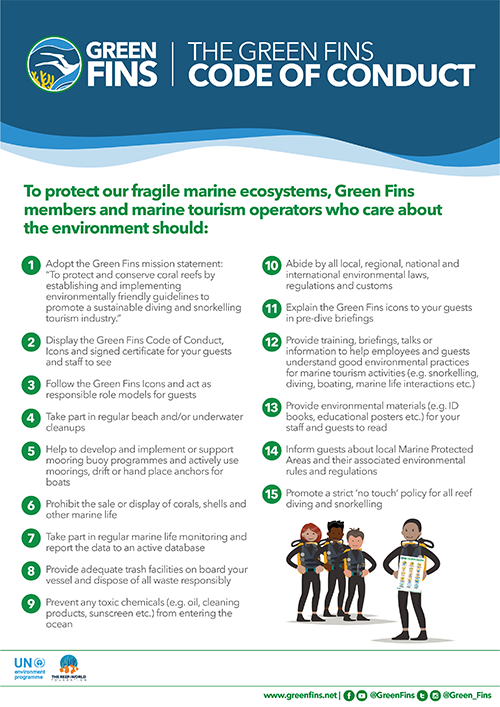

Sustainable Tourism Certification for Businesses
How it works, just five simple steps....
To become a member, set up a call with our team to start the process, or join online . We will send your membership agreement, the Sustainable Tourism Code of Conduct, provide access to our online assessment portal, and schedule your assessment.
Work through the questions. Some businesses will do this in under two hours and some will take more time to gather responses from their team.
Schedule your assessment with a GreenStep assessor. The assessment will last two to four hours and your assessor will review and discuss your responses with you in detail.
After the assessment you will be asked to submit further evidence for a random selection of criteria. Once this has been submitted, your assessor will finalize your report.
Once your evidence is received, your assessor will finalize and send your report and sustainability action plan. If you have met the minimum points required, your score will determine your bronze, silver, gold, or platinum certification. A report will be sent and reviewed, along with your marketing toolkit.
What you Get
Expert guidance, marketing support, enhanced credibility.
Annual fees for accommodation providers are based on the number of rooms. All other tourism businesses and organizations are based upon the number of full time equivalent employees (FTEs). Choose your size below. For Sustainable Tourism Destination Certification pricing, please see our Destinations page .
Micro Business
Rooms: 1 – 10
FTE’s: 1 – 5
Price: $599/year
Small Business
Rooms: 11 – 20
FTE’s: 6 – 25
Price: $899/year
Medium Business
Rooms: 21 – 100
FTE’s: 26 – 75
Price: $1,299/year
Large Business
Rooms: 101 – 200
FTE’s: 76 – 100
Price: $1,899/year
Enterprise Business
Rooms: 201+
FTE’s: 100+
Price: $2,499/year
Need a little more information?
Book a complimentary consultation today to discuss your needs and learn more about how we can help you reach your business goals., frequently asked questions.
Unlike other sustainable business certification programs that allow self-assessments and grading, every one of our members are individually assessed by a trained sustainable business expert, who reviews everything from energy efficiency to food sources.
This thorough assessment process gives our members insight into how to further reduce their businesses’s impact, how to best manage future projects, as well as a personalized action plan about how to build their sustainable business.
Sustainable Tourism has assessed all types of businesses, including hotels, campgrounds, wineries, distilleries, tour operators, tourist attractions, visitor centres, and more.
Tourists are looking for ways to be more sustainable in their travel, and look for ways to verify businesses engaging in sustainable actions. Research shows that businesses who are actively trying to address social and environmental issues in their business retain employees better, and have a more loyal consumer base. All of this works to generate higher returns for tourism businesses by engaging in behaviours that are good for people, the planet, AND profit.
Sustainable Tourism helps you recognize the good things you’re doing, and gives you guidance and support to work on the initiatives you want to employ. The Sustainable Tourism Certification shows customers, employees, and fellow business owners that you are doing good things for the world, and have the credibility to prove it.
The Sustainable Tourism Assessment consists of approximately 81 questions related to various areas of sustainable tourism operations. Each question of the assessment has been assigned a specific point value based on the environmental, social, and economic impacts of the particular action.
Sustainable Tourism Grading Levels: Platinum: 90%+ Gold: 75-89% Silver: 55-74% Bronze: 35-54%
Sustainable Tourism Certified membership is an annual fee, which must be renewed on an annual basis in order to maintain your grading status and to continue receiving the benefits associated with membership.
Prices vary depending on the size of your business. See our pricing page for more information.
Yes! When you sign up for your free Sustainability Score you will work through all of the questions and then learn what your grading might be.
It depends on your primary goal for undertaking an assessment. Most of our members are seeking a benchmark, advice and roadmap for future improvements, while gaining recognition for where they’re doing well. A quick response to all of the questions should take under an hour. Mark the ones you’re unsure of for “review” then go and get the answers and complete the remaining questions.
Depending on the size of your businesses, assessments can take from two hours for a very small business, or up to four hours for a large business.
Members are strongly encouraged to involve their sustainability teams or committees in the assessment process, as well as department managers. These people are involved in the day-to-day employment of sustainability initiatives and often have the best insight on operations within their functional roles. This ensures that the answers provided for the assessment are reflective of current operations and details can be given from the direct and appropriate source.
The assessment call should include you or your Green Team leader, and any other staff you feel are important to attend.
The certification process is comprised of an assessment carried out by a trained Sustainable Tourism assessor, which lasts approximately 2 to 4 hours, depending on the size of your businesses. We will ask for evidence for some of the criteria to verify your grading, but reserve the right to complete an onsite assessment. Each year we complete onsite audits to verify the sustainability practices of 10% to 20% of our members.
In order to maintain your grading level and status, you will need pay an annual membership fee which includes a reassessment every two years to ensure that you are continuing to meet the GreenStep Sustainable Tourism Certified standard.
Sustainable Tourism Certified businesses are promoted through online Sustainable Tourism platforms. Businesses will receive a certification announcement through social media platforms, and mentions in Sustainable tourism newsletters and blogs. Members will also be listed in the online Sustainable Tourism Certified directory.
Businesses should use their certification as grounds for their own personal marketing efforts through the use of logos and promotion of completed certification and achieved grading. Certification includes the use of the Sustainable Tourism Certified logo (with associated graded) in online and printed marketing materials, a window decal for display, and aluminum sign to post onsite.
Not sure how sustainable you are?

Shining a light on the green and gorgeous
What is green travel?
- Jul 2, 2019
Green Tourism
Green Tourism (was formerly known as The Green Tourism Business Scheme - GTBS) is a national sustainable tourism grading scheme in the UK that has been endorsed by VisitEngland, VisitScotland and VisitWales and has been validated by the International Centre for Responsible Tourism since 2008.
Operated by a not-for-profit organisation, Green Business, there are over 2,300 GTBS members throughout the UK and Ireland.
Businesses are graded by qualified environmental assessors and can benefit from significant marketing advantage and reduced running costs of up to 20%.
Green Traveller has visited and filmed over 100 Green Tourism graded businesses in the UK, writing, photographing and filming the businesses as part of our Green Travel Guides series.
Here's a video that explains how video can be used to to promote green tourism businesses:
More information about how it works and all its members, see green-tourism.com/members
Related Posts
Conservation, culture and commitment in action in Belize
Where food culture meets community tourism
Places to stay in Belize

- Green Restaurant
- Green Sport Facility
- Green Tourism Organization
- Green Camping
- Green Attraction
.cls-1 { fill: #fff; } .cls-2 { fill: url(#linear-gradient); } .cls-3 { fill: #328944; opacity: 0.5; isolation: isolate; } .cls-4 { fill: #0070b8; } .cls-5 { fill: #5bae52; } .cls-6 { fill: #fdfffd; }

Become member of GREEN TOURISM ORGANIZATION
GREEN TOURISM ORGANIZATION is a new tool to put on sustainable tourism. This label and all the efforts made towards being awarded it, can become the foundation for promoting and branding the organization as well as the destination within sustainability. More importantly this efforts also contributes to reaching the UN's Sustainable Development Goals.
We will make it easier, cheap and inspiring to work with sustainability, something which more and more guests put an emphasis on and demands in relation to vacations and business travels.
And maybe you can even save money as efforts are made towards minimizing operational costs.
Read here for how to get get started.
Green certification schemes for tourism businesses
Discover why your tourism business should join a green certification scheme and what schemes are available.
Showcase your green credentials
Manage your sustainability actions.
Tackling climate change is one of the biggest challenges facing Scottish tourism now. Consumer concern over the environment and climate has doubled in the last decade. Visitors are increasingly seeking out businesses and destinations with excellent green credentials.
What are green certification schemes?
Generally, an assessor will measure your business against a range of sustainability aspects.
By meeting these criteria, you gain the certification’s label, which you can use in the form of a verified badge of validation.
The assessor is an independent third party. They'll review your business regularly to ensure the sustainability criteria are being maintained.
Why join a green certification scheme?
A scheme's verified badge is a clear visible and verifiable way to prove your business' commitment to the environment to the public. Having such a badge will make it easier for environmentally conscious visitors to choose your business.
Taking part in a scheme is also a great way of reviewing your business' environmental, social, and economic impact. By being assessed for the scheme, you might get a clearer idea of where your business is doing well and where it could improve.
Benefits of joining a green certification scheme
Become greener
It’s a great way of reducing not just your carbon footprint, but also energy, water and waste bills.
Get more sustainable
The assessment's management framework lets you monitor and help improve your sustainable practices.
Raise awareness
It can help guests, staff, and suppliers become more environmentally conscious.
Get more visitors
You can use your certification to get a marketing advantage over your competitors.
Available programmes
The programme addresses key global environmental, cultural, social, and economic concerns. It deals with environmental regeneration and improvement. The programme also looks at the conservation of existing natural heritage assets.
Who are they?
EarthCheck is one of the world’s leading business advisory groups. It specialises in sustainability and destination management for the travel and tourism industry.
They have a holistic approach to responsible tourism and world-leading science. EarthCheck enables destinations and operators to benchmark and certify their performance with confidence.
EarthCheck collaborates with clients in over 70 countries to help plan for the future. They guide the design, construction, and operation of intelligent buildings. They also help with the responsible management of tourism destinations.
The certification is for organisations across the visitor economy with a defined boundary. It needs to have an appointed representative to be responsible for the management of the certification. It assesses the entire organisation’s management practices.
Economic concerns addressed in the programme include:
- employment conditions
- support of local economy
- recognition of the seasonality of tourism revenue
How to apply
Visit earthcheck.org for more information and apply.
Green Key has certified over 3,000 tourism businesses in 60 countries worldwide. It's one of the world’s largest eco-certification programmes for the tourism industry.
The Foundation for Environmental Education (FEE) owns this international, voluntary eco-label. It's managed in Scotland by Keep Scotland Beautiful and has been developed for the hospitality and tourism sector.
It's recognised and supported by the UN World Tourism Organisation and the UN Environment Programme.
Green Key criteria are based on:
environmental management
administration
green activities
staff involvement
food and beverage
Visit keepscotlandbeautiful.org for more information and apply.
Green tourism
Suitable for tourism and hospitality, this scheme helps businesses reduce their environmental impact. It's based on the three pillars of caring for people, places, and our planet.
Green Tourism influence and advise tourism and hospitality businesses. Founded in Scotland, it has more than 2,500 members and its reach extends to 20 different countries worldwide.
Its awards are globally acknowledged as an indicator of environmentally friendly best practice. The positive impacts it’s collectively making, endorses its overarching vision to care for people, places, and the planet.
The scheme's criteria cover over 70 indicators across 15 sustainability goals, including:
carbon, waste
biodiversity
local produce
ethical purchasing
All the criteria are aligned to the United Nations Sustainable Development Goals. In 2021, Green Tourism launched the Green Meetings Standard. This was on the back of a strong demand for a meetings sector specific accreditation.
Visit green-tourism.com for more information and apply.
Related links
Sustainable factsheets, climate change in scotland, responsible visitor industry guide, responsible tourism research.

Your Go-to Green Tourism Guide: Sustainable Travel Made Easy
Are you craving a transformative travel experience that aligns with your commitment to sustainability ? Welcome to the world of green tourism , where adventures and responsibility walk hand in hand.
What is Green Tourism?
Green tourism, synonymous with ecotourism and sustainable travel , revolves around making conscientious choices to lessen your travel footprint. It’s more than a buzzword; it’s a lifestyle.

Think about destinations with an active commitment to the environment. Consider accommodations that embrace sustainability. Ponder on travel habits that respect local cultures, support economies, and conserve biodiversity. That’s green tourism for you!
Why Choose Green Tourism?
Perhaps you’re wondering, “ why should I switch to green tourism? ” The answer lies in the impact of our travel choices. Traditional tourism often contributes to over-tourism, leading to environmental degradation and cultural displacement. The concept of eco tourism management comes in to counter this issue.
Benefits of Green Tourism
Switching to green tourism can bring several benefits. Here’s why it’s worth the hype:
1. Reduced Environmental Impact
- Green tourism encourages practices like reducing waste, conserving water, and limiting energy use. Such efforts drastically reduce the strain on our environment.
2. Supporting Local Economies
- Choosing local products, dining at local eateries, and opting for locally run accommodations pump money directly into the community. You can find inspiring eco tourism examples of this in action.
3. Cultural Preservation
- Green tourism promotes respect for local cultures and traditions. It discourages practices that may harm indigenous ways of life.
4. Enhanced Travel Experience
- Experiencing destinations responsibly often leads to more meaningful and memorable journeys. You’re not just a tourist, but an active participant in the preservation of the world’s beauty.
Green Tourism Practices: Where to Start?
So, how do you embark on your green tourism adventure? Let’s delve into the essential practices that will make your travels more sustainable and rewarding.
1. Choose Sustainable Destinations
Opt for destinations that prioritise sustainability. Countries like Costa Rica and Bhutan have become leaders in green tourism, balancing tourist influx with conservation efforts. For more options, check out our handpicked eco-tourism destinations .
2. Packing for Green Travel
Packing light and sustainably is your first step towards a green travel adventure. Start by considering what you really need – less weight means less fuel burned on your journey. Opt for versatile clothing items that can be layered and mix-and-matched.
Instead of buying travel-size toiletries, invest in reusable containers and fill them with your favourite eco-friendly products. Don’t forget a reusable water bottle and coffee mug – they’ll come in handy and significantly reduce your waste.
If you’re looking for eco-friendly products, try Patagonia for sustainable outdoor clothing or Biome for a wide range of eco-friendly travel essentials.
3. Green Travel Experiences
Green travel isn’t just about the preparations, it’s also about the experiences. Talk to local people, get to know their culture, and understand their relationship with the environment. Green travellers often share that this deepened understanding is what truly enriches their journeys.
Imagine, for example, visiting Costa Rica. Instead of just admiring the biodiversity, you learn about the locals’ efforts in preserving their environment. This transforms your experience from mere sightseeing to understanding and appreciating the underlying efforts and the local community.
Green tourism experiences like these not only enrich our understanding but also inspire us to be more mindful of our own everyday choices.
4. Sustainable Transportation
How you get around matters. Where possible, opt for public transport, biking, or walking. Not only does this reduce carbon emissions, but it allows you to engage authentically with the local scene.
5. Support Local Businesses
Be it dining, shopping, or lodging, prioritise local businesses. By doing so, you directly support local economies and get a taste of authentic local culture. And while shopping, consider our guide on responsible souvenir shopping .
6. Eco-friendly Accommodation
Look for accommodations that prioritise sustainability, such as using renewable energy, recycling programs, and water-saving measures. Wondering where to start? Check out our guide on choosing luxury eco-tourism accommodations .
7. Respect Local Cultures
Travel is an exchange, not a conquest. Respect local customs, traditions, and rules. Ask before taking photos of people or sacred sites, dress appropriately, and learn a few local phrases.
The Future of Green Tourism
Green tourism is no fleeting fashion – it’s the future. And it’s as solid as the Grand Canyon or as undeniable as the Great Barrier Reef. Climate change, over-tourism, pollution – our planet is crying out for help. But guess what? Green tourism could be our superhero, a beacon of hope.

According to our pals at the United Nations World Tourism Organization (UNWTO), there was a shocking 74% drop in international tourist arrivals in 2020, all thanks to a certain pandemic. Now that’s a stat that should get us all thinking!
As we continue our travel comeback, it’s clear sustainability needs to sit in the front seat. In-fact a 2022 survey by Booking.com found that a whopping 69% of travellers want more sustainable travel options. Now that’s a wake-up call for the travel industry!
Rethinking Travel All Together
With the ever-growing eco-conscious crowd, green tourism is ready to step up its game. But it’s not just about reducing carbon emissions or saving water (although those are super important, don’t get me wrong). It’s about rethinking how we travel, how we connect with local cultures and economies, and how we ensure that the beautiful places we love to explore are preserved for future generations.
So let’s buckle up and get ready to make the shift. Because green tourism isn’t just a ‘nice-to-have’ anymore – it’s a ‘must-have.’ Let’s change the way we travel and make every journey a green journey. Because if we want our kids, and their kids, to witness the beauty of this world, it’s high time we all embraced responsible tourism . And let me tell you, friend, the future looks greener than ever.
Wrapping It Up: Your Green Tourism Checklist
Alright, eco-warriors! We’ve navigated the lush forests of green tourism, and now it’s time to summarise the adventure. Here’s your go-to checklist to make sure your next journey is as green as it gets:
- Choose eco-tourism destinations with a clear commitment to sustainability.
- Opt for luxury eco-tourism accommodations that respect their environment.
- Travel overland whenever possible. If you must fly, offset your carbon emissions.
- Support local businesses and respect local cultures.
- Pack light and eco-friendly. Remember, every little helps!
- Stick to designated trails and avoid disturbing wildlife.
- Leave no trace behind. This is your new mantra!
- Finally, always remember that sustainability begins with you. Be the change you wish to see in the world!
Did You Know? Green Tourism Fun Fact
As promised, here’s a different sort of tidbit to round off our green journey. Ever heard of the country Bhutan? This small Himalayan kingdom isn’t just stunning – it’s the world’s only carbon-negative country. Yes, you read that right! Bhutan absorbs more CO2 than it produces. Now that’s what we call a sustainability superstar!
Want to know more about Bhutan’s unique approach to tourism? Dive into our in-depth analysis of Bhutan’s High Value, Low Impact Model . Let’s all get inspired and make our world a greener place, one journey at a time.
Green Tourism FAQ / TL;DR
1. what is the difference between ecotourism and green tourism.
Eco-tourism focuses specifically on travel to natural areas that conserves the environment, sustains the well-being of the local people, and involves interpretation and education. Green tourism is a broader concept and includes any form of tourism that is more sustainable than traditional forms, not strictly limited to natural environments.
2. How can I make sure my green tourism actions really make a difference?
By supporting local businesses and choosing sustainable accommodations, you’re making a real impact. Also, by spreading awareness about green tourism, you influence others to make more eco-friendly choices, which amplifies your impact.
3. What is carbon offsetting and how can it help in green tourism?
Carbon offsetting is compensating for your emissions by funding equivalent carbon dioxide savings elsewhere, often through projects like planting trees or investing in renewable energy. It can’t solve the problem entirely, but it can help to balance out the emissions from necessary travel.
4. Can green tourism be luxury tourism?
Yes, absolutely! Many luxury accommodations are making substantial efforts to reduce their environmental impact . From energy-efficient buildings to organic local cuisine, green tourism can definitely include a touch of luxury.
Related Posts

Sustainable Tourism: Explore Eco-Friendly Destinations and Green Travel Tips

Eco Tourism Destinations: Top Picks for a Sustainable Adventure

Green Business Travel: A Comprehensive Guide for Sustainable Corporate Travel in 2023

Choosing Luxury Eco Tourism Accommodations: Your Sustainable Stay Guide
Leave a comment cancel reply.
Your email address will not be published. Required fields are marked *
Save my name, email, and website in this browser for the next time I comment.


Caravan and Motorhome Club
Free on Google Play
- Tips and ideas
- Touring advice
- Green Tourism
Looking Ahead
Mark Feast, Sustainability Advisor at the Club, chats to Andrea Nicholas of Green Tourism about her organisation and how it can shape our approach to environmental issues

Hi Andrea, thank you for taking the time to discuss and introduce Green Tourism to our members. When and why did Green Tourism come to be?
Green Tourism has been running for 25 years, during which time we have developed an internationally respected accreditation scheme which now has over 2,500 members in 22 countries. It was founded to provide expert advice and eco-development programmes to help businesses get greener whilst saving them money and helping the environment, and to provide a benchmark to prove that businesses have taken on sustainability as an integral part of their business strategy.
What are the main goals and purposes of Green Tourism? The main goals and purposes are to help businesses to operate in a greener way and provide advice on how to ‘Care for People’, ‘Care for Places’ and 'Care for Our Planet’. Our goal is to help businesses become more sustainable, contribute to their destination and engage and influence people to change their behaviour and make a difference. Key areas include helping businesses to reduce their energy, water usage, waste output, and their carbon footprint. It also includes aspects such as buying local and seasonal produce to limit food miles, supporting local culture, looking after nature, promoting biodiversity, and embedding sustainability into all aspects of their business.
What is the benefit of Green Tourism membership? The benefits of Green Tourism membership are many. It demonstrates to customers, suppliers, other businesses, and stakeholders that you are committed to a greener way of operating and that by becoming a Green Tourism member and gaining accreditation you have demonstrated this.

How can members get involved? Members can all play a part in helping the Club become a progressive, environmentally caring organisation, by simply reading the individual site’s Greener Guest Guide when they visit and following it whilst on site. [Actions] could be recycling their waste, taking shorter showers, using environmentally friendly toilet products and respecting wildlife and the environment. Getting feedback, encouragement and suggestions from members when they are on site is a great way to make sure you are doing the right thing, not miss any quick wins or obvious easy improvements and benefit from the expertise and areas of interest that they may have.
What are the biggest opportunities that the Club can gain from collaborating with Green Tourism?
The Club is gaining a huge opportunity by being able to demonstrate to your members that you take sustainability seriously, that you recognise you have a responsibility and that you have a structured and focused approach to addressing your impacts and those of your members at each of your Club sites. By joining our 'club', you will have on-going support, see examples of best practice, gain up-to-date expert advice relevant to your business as well as access to a wealth of knowledge built up over the last 25 years in the form of resource guides, fact sheets and access to the assessors, who have an abundance of experience in many different disciplines.
If you had just one bit of advice for the Club and our members, what would you recommend and why? Look at what you do, what is in your control and what you could change for the better. It can be easy to get overwhelmed with the big issues that need to change for a more sustainable future. So we recommend you step back and look at things in bite-size pieces, identify those quick wins that can be done without spending a lot of money. It is surprising how much can be achieved just by small changes in behaviour, such as not automatically jumping in the car to go to the shops, instead taking a walk and appreciating nature which can be great for your own wellbeing as well as the planet. Small changes to help you operate or live in a more sustainable way can make a significant difference.
What are the biggest challenges ahead for the tourism industry as a whole? The biggest challenges for the tourism industry are still the recovery from COVID, the impact of Brexit, and ongoing increases in taxation (e.g. VAT and business rates) and energy costs. There is a serious shortage of people that want to or are available to work in tourism either because we aren’t getting so many workers from Europe / internationally or because many people decided to move out of the industry during the lockdown. Paying a real living wage, investing in training and looking after their employees are areas that the Club is doing really well in, and measures like these are necessary to address these challenges for the tourism industry as a whole.
The Caravan and Motorhome Club is delighted to announce that we have achieved a Silver Award, from the Green Tourism accreditation scheme, across its nationwide campsite network and its Head Office, based in Sussex. You can read more about this in Club News .
- Privacy & Disclaimer
Living There

Green Tourism: Embracing Sustainable Travel Practices
The essential guide to green tourism: how to travel sustainably.
Green tourism, also known as sustainable tourism, has become an increasingly popular way to travel. It aims to minimize the negative impacts of traditional tourism on communities and the environment. With more travelers looking for eco-friendly lodging, transportation and activities, green tourism offers a way to explore new places while also supporting local cultures and conservation efforts. This guide will provide tips and resources for planning a sustainable trip from start to finish.
What is Green Tourism?
Green tourism prioritizes environmental sustainability, social responsibility and economic benefits for local communities. According to the U.N. Environment Programme, green tourism involves “making better choices that minimize environmental impact, provide memorable experiences for visitors and offer socio-economic benefits to local people.”
Some key principles of green tourism include:
- Minimizing environmental impact by reducing energy and water consumption, waste, pollution and harm to ecosystems.
- Supporting local economies by choosing locally-owned hotels, tour operators and businesses.
- Learning about local cultures, customs and environments to foster deeper connections.
- Traveling responsibly by being respectful of communities visited and following ethical guidelines.
- Eco-conscious transportation choices like public transit, walking, biking or electric/hybrid vehicles.
The green tourism movement emerged in the 1980s as travelers became more aware of the potential negative impacts of mainstream tourism. Activists called for practices that could balance tourism growth with conservation and community development.
Since then, global initiatives like eco-certification programs and awards for sustainable tourism providers have helped green tourism expand. Major travel companies now offer eco-friendly tours and carbon offset options. With climate change and overtourism challenges, green principles are vital for tourism’s future.
Green Tourism Eco-Friendly Transportation Options
Getting to your destination is an important part of any trip. As a green traveler, consider lower-impact transit choices that reduce carbon emissions:
Public Transportation
Buses, trains, metros and other public transit are more sustainable options than driving. Look for routes that connect to your destination directly or indirectly. For longer journeys, opt for a night train or bus to save on accommodation too.
Walking and Biking Green Tourism
Active transport like walking and biking liberates you to explore up close while avoiding emissions. Urban areas are often best discovered on foot or bike. Ask your hotel about rentals or city bike share programs.

Ride Sharing
Carpooling via services like BlaBlaCar cuts fuel use by sharing rides. Apps like these connect travelers headed the same way. Some local ride sharing services cater specifically to tourists.
Electric and Hybrid Vehicles
If renting a car, choose electric or hybrid models which release fewer emissions. Hertz, Enterprise, Sixt and other rental companies offer these greener options in many locations.
Carbon Offsets Green Tourism
Offset the emissions of your trip by investing in environmental projects that reduce CO2. Trusted offset providers include Cool Effect and Terrapass. Calculate your footprint and donate to renewable energy or tree planting efforts.
Green Accommodation Options
Where you stay makes a difference. Research lodging with eco-friendly practices like:
Purpose-built ecolodges focus on sustainability through renewable energy, water conservation, waste management and environmentally sensitive design. Many are located in natural settings with minimal footprints. For example, Inkaterra Reserva Amazonica in Peru showcases its eco-lodge model.
Green Hotels
Look for hotels with environmental certifications like Green Key or sustainability programs. Policies may include renewable energy sources, efficient lighting, linen/towel reuse options and recycling. Hotels committed to green principles include Six Senses, 1 Hotels and Proximity Hotel.
Homestays and B&Bs
Local small accommodation provides cultural immersion and keeps money in the community. Search sites like Airbnb for eco-friendly homes and properties. Seek options with environmental designs.
Green Tourism Camping
Get closer to nature by camping on public lands, private eco-campgrounds or glamping resorts. Follow Leave No Trace principles when camping in sensitive natural areas. Companies like Collective Retreats offer luxury camping with a focus on sustainability.
No matter the lodging type, look for renewable energy usage, water conservation like low-flow fixtures, effective waste and recycling programs, locally sourced foods and supplies, and sensitivity to surrounding environments.
Top Destinations for Green Travelers
Here are some of the world’s best places to experience green tourism first-hand:
With lush rainforests, beaches and volcanoes, Costa Rica attracts eco-minded visitors to its protected lands. National parks like Manuel Antonio safeguard diverse wildlife. Hotels, tour operators and communities actively engage in sustainability. Popular activities include jungle hikes, rafting, surfing and wildlife viewing.
This Pacific island nation offers pristine coral reefs ideal for snorkeling and scuba diving. Palau conserves marine biodiversity in protected waters and sanctuaries. Eco-resorts, sustainable diving operations and education efforts have made Palau a prime green destination.
Slovenia holds the title of first Green Globe destination in the world for its commitment to sustainable tourism. Stunning Alpine scenery, expansive forests and charming towns make it a nature lover’s haven. Slovenia’s extensive hiking and biking trails showcase the outdoors.
SwedenGreen Tourism
Sweden actively pursues eco-friendly practices from transportation to hotels. Stockholm was named Europe’s first European Green Capital for its sustainability efforts. Sweden also excels at eco-tourism focused on small footprint activities like wildlife viewing, sailing, biking, hiking and camping.
Kerala, India
The beaches, backwaters and tea plantations of Kerala invite green travelers. Visitors can stay on eco-friendly houseboats, get around by bike or canoe, and tour sustainably managed spice gardens and tea estates. Kerala’s emphasis on environmental protection and social wellbeing align with green tourism goals.
Torres del Paine, Chile
From azure lakes to soaring Andean peaks, Chile’s Torres del Paine National Park is regarded as one of the most stunning natural sites in the world. Strict visitor regulations help conserve its beauty. Patagonia’s cutting edge eco-lodges, hiking trails and preservation efforts further boost sustainable travel here.
These destinations and many more demonstrate how green tourism positively impacts communities, preserves cultures and protects fragile ecosystems so they may be enjoyed responsibly.
Making Green Choices as an Eco-Friendly Traveler
Travelers have significant power to minimize their environmental impact through conscientious choices:
Pack Light and Avoid Single-Use Plastics
Pack only essentials to reduce weight and avoid disposable plastics that end up as waste. Bring reusable bags, bottles, straws and utensils for the journey. Say no to room products in plastic containers.
Choose Responsible Tour Providers
Select operators committed to sustainability like G Adventures which supports local businesses. Seek companies certified by organizations like Travelife that audit environmental, social and economic practices.
Green Tourism Conserve Resources
Lessen your consumption of energy and water during your stay by turning off lights, reusing towels and taking shorter showers. Dispose of waste properly and use recycling bins.
Support Local Businesses Green Tourism
Eat, shop and experience activities at locally-owned establishments so money stays in the community. Avoid international chains which send profits abroad. Seek authentic cultural experiences.
Volunteer Thoughtfully
If volunteering, scrutinize programs for ethical, long-term impact. Focus on community-driven initiatives rather than short-term missions. Skilled contributions are most valuable.
Green Tourism Follow Guidelines
Adhere to rules and guidelines to minimize your impact like staying on trails, not feeding wildlife and avoiding banned activities that disrupt natural habitats.
Travelers should be mindful of their choices before and during trips to ensure the principles of green tourism are upheld.
The Future of Sustainable Travel Green Tourism
The trajectory of green tourism points towards further growth as climate change pressures the industry to adopt more sustainable models. Travelers increasingly demand eco-friendly options while governments implement environmental regulations.
New technologies will continue improving energy and water efficiency. Renewable energy systems are becoming more affordable and widespread. Creative conservation financing like credits and offsets will likely expand to engage travelers directly in funding green projects.
Yet challenges remain in fully mainstreaming sustainable practices. Achieving climate neutral travel will necessitate improvements across massive transportation networks and energy grids. Overtourism strains popular destinations and requires visitor management strategies.
Travelers will play a key role by supporting businesses pursuing sustainability, offsetting emissions and voting with their travel dollars to propel green tourism. Avoiding overtouristed destinations in favor of less crowded ethical alternatives makes a difference.
With mindful choices, travelers can protect the planet and communities they visit for generations to come. Green tourism provides a meaningful way to cultivate care for nature and culture while exploring the diversity of our world.
Conclusion of Green Tourism
Green tourism offers endless opportunities to tread lightly, engage local communities and appreciate nature’s gifts more deeply. This guide outlines principles, transportation modes, eco accommodation, destinations and traveler tips to enhance sustainability.
Making mindful choices throughout the journey – from transit to activities – enables travelers to curtail their environmental impact. Selecting tour providers vetted for ethical practices ensures money spent gives back. Discovering destinations’ natural and cultural richness through an eco-friendly lens fosters wonder and care for our shared planet.
Travel is a transformative portal. The green tourism movement opens the doorway to next generation travel defined by environmental values, social consciousness and a restored balance with the natural world. By supporting sustainable models, travelers become active stewards preserving our living planet for the future.
FAQs about Green Tourism:
- What exactly is green tourism? Green tourism, also known as sustainable tourism, involves traveling responsibly to natural areas while conserving the environment and improving the well-being of local communities.
- How can I participate in green tourism? Transitioning from traditional travel practices to green tourism involves making conscious choices such as supporting eco-friendly accommodations, minimizing waste, and respecting local cultures and traditions.
- What are the benefits of green tourism? Green tourism promotes environmental conservation, fosters cultural exchange, supports local economies, and provides travelers with meaningful and authentic experiences.
- Are there any certifications or labels for tourism destinations? Yes, various organizations offer certifications and labels to identify destinations and accommodations that adhere to sustainable tourism practices. Look for certifications like Green Key, EarthCheck, or LEED certification for eco-friendly buildings.
- How can I find tourism destinations to visit? Research online resources, consult with travel agencies specializing in sustainable travel, and look for recommendations from eco-conscious travelers to discover green tourism destinations around the world.
Reference Links:
http://medium.com/@fronnolluneiwa3418/ace-your-salesforce-b2c-commerce-developer-exam-with-official-exam-dumpss-comprehensive-dumps-pdf-4a312becbbb0
http://medium.com/@fronnolluneiwa3418/ace-your-oracle-1z0-083-exam-with-official-exam-dumps-authentic-practice-questions-e0867b640f4a
http://medium.com/@fronnolluneiwa3418/unlock-your-salesforce-pardot-consultant-certification-with-official-exam-dumps-1d5d1c2f2f4b
http://medium.com/@fronnolluneiwa3418/unlock-your-cisco-350-801-success-with-official-exam-dumpss-comprehensive-dumps-2e40a12d18e8
http://medium.com/@fronnolluneiwa3418/unlock-your-aws-dbs-c01-certification-success-with-official-exam-dumpss-reliable-dumps-ac80ddc3241e

About M Williams
Related Posts

Yttowav: Exploring Nature’s Serenity and Beauty
March 9, 2024

Belize City Tourism: Exploring Caribbean Charm and Culture

Axiom Telecom LLC: Trusted Telecommunication Solutions Provider
March 8, 2024

Green Tourism Business Scheme

The GTBS is the national sustainable tourism certification scheme for the UK & Ireland with over 2400 members. It is the only national certification programme endorsed by the National tourism agencies.
Businesses opting to join Green Tourism are assessed by a qualified grading advisor against a rigorous set of 145 criteria, covering a range of areas, including energy and water efficiency, waste management, purchasing, travel, biodiversity and more. Those businesses that meet the required standard, receive a Bronze, Silver, or Gold award based on their level of achievement. They are regraded once every two years.
The current network of members is comprised of a wide range of business types, including accommodation providers, visitor attractions, activity providers, conference and events venues, corporate offices and others.
Conformity assessment | How is compliance with this ecolabel's standard ensured?
Conformity with Green Tourism Business Scheme's standard is verified by an independent organization (third party) following ISO 19011 QMS and EMS auditing (and auditor qualifications)
Certification / registration required
Applicants are certified against the ecolabels’s criteria before using the label
Managing organization | Who manages this ecolabel?
Green Business UK Ltd
Also manages
Member of: ICRT
Ecolabel Index pro | Subscription service
Additional data available to subscribers:
- Applicable life cycle and supply chain phases
- Social and environmental attributes
- Mutual recognition with other ecolabels
- Standard details, including standard document, review frequency
- Standard development and management process
- Standard -setting norms followed for development of the ecolabel's standard
- Type of standard-setting process, external stakeholders, and funding sources
- Requirements to achieve certification (i.e. chain of custody, site visits, metrics)
- Audit / surveillance requirements
- Duration of certification, time to achieve certification
- Contact details, primary contact
- Organizational details including year established, funding, and governance
Additional information | Including:
- Compliance type (pass / fail / tiered)
- Target audience (consumers / retailers / manufacturers / etc)
See plans and pricing
No contract — upgrade, downgrade, or cancel at any time.
FREE access for ecolabelling organisations.
Advertisement

Classification | Who, what, where
Product categories this ecolabel applies to Tourism
Where this ecolabel is found Canada Ireland United Kingdom
Keep up to date | News, press
Subscribe to our mailing list for occasional updates.
| There are more than 450 meanings behind “green” labels
More mentions...

Help build this site | Submit, suggest
Did we miss one? Suggest an ecolabel.
Suggest a correction for this label .
Last updated: 13 March 2014
Ecolabel Index , the global directory of ecolabels, is brought to you by Big Room Inc. .
We also operate .eco, a new web address for those committed to positive change for the planet. Get your own .eco domain name today.
© 2024 Big Room Inc. All rights reserved.
- Privacy Policy

- GSTC Mission & Impacts
- GSTC History
- Market Access Program
- GSTC Board of Directors
- Assurance Panel
- Working Groups
- GSTC Sponsors
- GSTC Members
- Recruitment
- Contact GSTC
- GSTC For the Press
- Criteria Development, Feedback & Revisions
- Sustainable Tourism Glossary
- SDGs and GSTC Criteria
- GSTC Industry Criteria
- GSTC Destination Criteria
- GSTC MICE Criteria
- Criteria Translations
- GSTC-Recognized Standards for Hotels
- GSTC-Recognized Standards for Tour Operators
- GSTC-Recognized Standards for Destinations
- Recognition of Standards (for Standard Owners)
- GSTC-Committed
- Certification for Hotels
- Certification for Tour Operator
- Certification for Destination
- Accreditation for Certification Bodies
- Accredited Certification Bodies
- Stakeholder Consultations
- What is Certification? Accreditation? Recognition?
- Sustainable Tourism Training Program (STTP)
- Upcoming Courses
- Professional Certificate in Sustainable Tourism
- Professional Certificate in Sustainable Business Travel
- GSTC Trainers and Partners
- FAQs: GSTC Training Program
- Organization Membership Application
- Destination Membership Application
- Membership Policy
- Membership Categories & Fees
- Membership Payment Options
- Webinars for GSTC Members
- Members Log In
- Upcoming Webinars
- GSTC2024 Singapore, Nov 13-16
- Upcoming Conferences
- Past Conferences
- Destination Stewardship Report
Green Tourism Criteria Gains GSTC-Recognized Standard Status

The Green Tourism Criteria is based on three principles, caring for People, Places, and Our Planet. It gives support to tourism & hospitality businesses to make a difference, save resources, and reduce their carbon footprint, considering the social, economic, and environmental actions undertaken and provides a holistic review of the business’s sustainability performance.
The GSTC-Recognized status refers to the standard itself, indicating that a sustainable tourism standard has been reviewed by GSTC technical experts and the GSTC Assurance Panel and deemed the content of the standard equivalent to the GSTC Criteria for sustainable tourism. It shows that the set of standards is based on the four pillars of the GSTC Criteria : Sustainable Management, Socioeconomic, Cultural, and Environmental principles.
GSTC Recognition of Standards does not relate to the process of certification (which is a third-party assessment, through an audit, of a tourism enterprise for conformity to a standard). GSTC Recognition of Standards does not relate to accreditation (formal verification that a certification body operates in a competent and neutral manner according to international standards of how to properly certify, which is the highest level of assurance).
The stated scope of the standard is ‘Hotels and other accommodation facilities’ with international coverage. The GSTC Recognition of the standard. The GSTC Recognition has an additional time limitation that by 31 December 2024, owners of existing GSTC-Recognized Standards need to pursue accreditation.
Andrea Nicholas, Founder and CEO of Green Tourism , expresses her delight at having their criteria acknowledged by GSTC. “We are proud to be aligned with GSTC’s global effort to fulfill tourism’s potential as a vehicle for social, cultural, and economic good by fostering the increased knowledge, understanding, adoption, and demand for sustainable tourism practices and standards. We will strive to nurture a lasting and supportive relationship with GSTC to advance industry progress.”
“By incorporating the principles of the Four Pillars of the GSTC Criteria into its core, Green Tourism displays its allegiance to a holistic and global strategy,” says Randy Durband, CEO of GSTC.
Currently, 15 destination standards , 20 tour operator standards , 44 hotel standards , and 5 systems have achieved GSTC-Recognized status. The status offers the market proof that these standards adhere to international norms. GSTC Recognition does not ensure that a certification process is reliable, only that the set of standards used to certify are equivalent to the GSTC Criteria. GSTC-Recognized standard owners are encouraged to follow and complete the accreditation process , which assures that the certification process used to apply the standard meets international best practices, transparency, and rigor. A list of GSTC-Accredited certification bodies is available here .
About the GSTC
The Global Sustainable Tourism Council® (GSTC®) establishes and manages global sustainable standards, known as the GSTC Criteria. There are two sets: Destination Criteria for public policy-makers and destination managers, and Industry Criteria for hotels and tour operators. These are the guiding principles and minimum requirements that any tourism business or destination should aspire to reach in order to protect and sustain the world’s natural and cultural resources, while ensuring tourism meets its potential as a tool for conservation and poverty alleviation.
The GSTC Criteria form the foundation for Accreditation of Certification Bodies that certify hotels/accommodations, tour operators, and destinations as having sustainable policies and practices in place. GSTC does not directly certify any products or services; but it accredits those that do. The GSTC is an independent and neutral USA-registered 501(c)3 non-profit organization that represents a diverse and global membership , including national and provincial governments, leading travel companies, hotels, tour operators, NGO’s, individuals and communities – all striving to achieve best practices in sustainable tourism.
Information for media and the press: https://www.gstcouncil.org/about/for-the-press/
About Green Tourism
Green Tourism works to promote a greener, cleaner environment, for people, places, and our planet, by offering their members advice on: Reducing energy use; Saving water; Efficient & eco-friendly waste disposal; Ethical buying; Staying local & seasonal; Minimising food miles; Promoting biodiversity; Adopting a smart, sustainable outlook from top to bottom.
Green Tourism understands that sustainability is the key to success within the modern hospitality industry. For the industry to be successful both nationally and internationally it is important to have a system in place to help set targets and to show continual improvement.
More information here: https://www.green-tourism.com/
Share This Story, Choose Your Platform!
Related posts.

GSTC publishes its 2023 Annual Report

B&B HOTELS Joins GSTC

NJV ATHENS PLAZA Achieves the First GSTC Certification in Greece by a GSTC-Accredited Certification Body

About Green Fins
Protecting coral reefs through sustainable marine tourism.
Scuba diving, snorkelling and other forms of marine tourism are fantastic activities to introduce people to the marine environment and create new ocean advocates. However, unmanaged, these activities can have acute negative impacts for fragile ecosystems like coral reefs.
Green Fins is a proven conservation management approach – implemented internationally by The Reef-World Foundation and the UN Environment Programme – which leads to a measurable reduction in the negative environmental impacts associated with marine tourism. It aims to protect coral reefs through environmentally friendly guidelines promoting sustainable diving and snorkelling. It provides the only internationally recognised environmental standards for marine tourism and its robust assessment system measures compliance.
Green Fins encourages and empowers divers, snorkellers, the diving industry and coastal communities to reduce the pressures on coral reefs by offering marine tourism companies practical, low-cost alternatives to harmful practices – such as anchoring, fish feeding and chemical pollution – as well as providing strategic training, support and resources.
It’s proven that by reducing the local pressures tourism puts on coral reefs, we can help make corals healthier and more resilient to other stresses such as the effects of climate change.
We are working towards a future where environmentally friendly practices are standard across the marine tourism industry ., mission statement: “to protect and conserve coral reefs by establishing and implementing environmentally friendly guidelines to promote a sustainable diving and snorkelling tourism industry.”, vision : sustainable diving and snorkelling is the norm, established: 2004, who is part of the green fins network.
Green Fins is the world’s first independent certificate to stop the environmental impact from marine-based tourism, implemented predominantly through its membership available for marine tourism operators everywhere.
Green Fins memberships are managed through a centralised platform – the Green Fins Hub. This allows all operators easy access to a personalised action plan, a library of environmental solutions as well as connection to other operators and conservation experts through the Community Forum.
There are two types of membership – certified and digital.
Certified Membership
In ‘active’ countries , Green Fins is implemented by a national team composed of government staff (often in collaboration with NGOs). Certified Members receive in-person assessments and training from assessors annually. They have met a minimum threshold score within their assessment, therefore reaching a global minimal acceptable standard of environmental operations for marine tourism.

Operators that qualify as Certified Members will be ranked according to their performance, as Bronze, Silver or Gold . In order to provide greater transparency for tourists to understand where an operator is on their sustainability journey, Certified Members will advertise their membership with either a bronze, silver, or gold logo.

Since 2004, over 700 marine tourism operators have joined as Green Fins Certified Members, adopting the code of conduct and improving their compliance over time. You can find each country’s team profile on the Find a Member page.
Digital Membership
Increased demand for Green Fins implementation lead Reef-World to launch Digital membership in 2022 to make Green Fins membership available to operators everywhere . This provides all dive, snorkel and liveaboard operators an opportunity to join the Green Fins network and start implementing positive change before their country becomes an active Green Fins country. Digital Members make the same commitment to implement the Green Fins code of conduct , however each Digital Member’s sustainability journey is self-managed online. This includes a thorough self-evaluation of the operation’s environmental practices which generates a personalised score and annual action plan. Membership costs $140 to sign up and $60 renewal for each year after.

Digital membership is self-evaluated, expansive and inclusive, and due to this, there is no minimum score requirement. To highlight this difference with certified membership for tourists, there is a specific Digital Member logo for these operators.
Search for a sustainable operator on the Digital Members page or find out more about joining the Green Fins network as a Digital Member .
What are the Environmental Standards?

Code of Conduct
The Green Fins Code of Conduct sets out 15 environmental standards for marine tourism operations to adopt. The Code of Conduct covers best practices for both above and below the water and considers the role of managers, operator staff and tourists. Although designed around protecting coral reefs, these standards can apply to all marine environments (e.g. seagrass meadows, mangroves, kelp forests etc.).
How Can You Use Green Fins?
Dive professionals, operator owners and managers.
If you would like to find out more about the Green Fins initiative, please contact Reef-World at [email protected] .
The Green Fins initiative is supported by:

1-3 Gloucester Rd, Bishopston, Bristol, England, UK, BS7 8AA +44 (0) 56 0366 2089
© the reef-world foundation 2024. registered charity no. 1157096..
Programs submenu
Regions submenu, topics submenu, biotech innovation and bayh-dole: a fireside chat with gillian m. fenton, the impossible state live podcast: a threat like no other - the russia-north korea alliance, the state of russia's defense industry after two years of war and sanctions, report launch: the role of trust in advancing equity in innovation.
- Abshire-Inamori Leadership Academy
- Aerospace Security Project
- Africa Program
- Americas Program
- Arleigh A. Burke Chair in Strategy
- Asia Maritime Transparency Initiative
- Asia Program
- Australia Chair
- Brzezinski Chair in Global Security and Geostrategy
- Brzezinski Institute on Geostrategy
- Chair in U.S.-India Policy Studies
- China Power Project
- Chinese Business and Economics
- Defending Democratic Institutions
- Defense-Industrial Initiatives Group
- Defense 360
- Defense Budget Analysis
- Diversity and Leadership in International Affairs Project
- Economics Program
- Emeritus Chair in Strategy
- Energy Security and Climate Change Program
- Europe, Russia, and Eurasia Program
- Freeman Chair in China Studies
- Futures Lab
- Geoeconomic Council of Advisers
- Global Food and Water Security Program
- Global Health Policy Center
- Hess Center for New Frontiers
- Human Rights Initiative
- Humanitarian Agenda
- Intelligence, National Security, and Technology Program
- International Security Program
- Japan Chair
- Kissinger Chair
- Korea Chair
- Langone Chair in American Leadership
- Middle East Program
- Missile Defense Project
- Project on Critical Minerals Security
- Project on Fragility and Mobility
- Project on Nuclear Issues
- Project on Prosperity and Development
- Project on Trade and Technology
- Renewing American Innovation Project
- Scholl Chair in International Business
- Smart Women, Smart Power
- Southeast Asia Program
- Stephenson Ocean Security Project
- Strategic Technologies Program
- Wadhwani Center for AI and Advanced Technologies
- Warfare, Irregular Threats, and Terrorism Program
- All Regions
- Australia, New Zealand & Pacific
- Middle East
- Russia and Eurasia
- American Innovation
- Civic Education
- Climate Change
- Cybersecurity
- Defense Budget and Acquisition
- Defense and Security
- Energy and Sustainability
- Food Security
- Gender and International Security
- Geopolitics
- Global Health
- Human Rights
- Humanitarian Assistance
- Intelligence
- International Development
- Maritime Issues and Oceans
- Missile Defense
- Nuclear Issues
- Transnational Threats
- Water Security
States Weekly: June 26, 2024

Newsletter — June 26, 2024
Big News : Bihar High Court reverses government decision to increase reservation for citizens from Backward Classes, Extremely Backward Classes, Scheduled Castes and Scheduled Tribes; Bihar Electricity Regulatory Commission (BERC) publishes the draft BERC Green Energy Open Access Regulations for 2024 ; Delhi Electricity Regulatory Commission (DERC) releases the draft DERC Renewable Purchase Obligation and Renewable Energy Certificate Framework Implementation Regulations, 2024 ; and more.
Nothing critical to report this week
Climate Change & Energy
Bihar Electricity Regulatory Commission (BERC) publishes the draft BERC Green Energy Open Access Regulations for 2024 . The draft regulations are aimed at promoting the generation, purchase, and consumption of green energy in Bihar. Source : Solar Quarter ; In detail : Draft BERC Green Energy Open Access Regulations 2024
Delhi Electricity Regulatory Commission (DERC) releases the draft DERC Renewable Purchase Obligation and Renewable Energy Certificate Framework Implementation Regulations, 2024 . The draft regulations for renewable purchase obligation (RPO), mandate a 29.91 per cent green energy purchase this year for all stakeholders, including discoms. Source : Economic Times ; In detail : Draft DERC (Terms and Conditions for Green Energy Open Access) Regulations, 2024
Goa announces a hike in value added tax (VAT) on petrol and diesel with effect from June 22, which will raise the price of petrol by $0.0119 and diesel by $0.00431. Source : NDTV ; In detail : Notification
Industrial Policy & Business Regulations
Uttarakhand approves an amendment in the Uttarakhand Tourism Policy 2018 , specifying the period during which different categories of industries will be getting state GST (SGST) compensation. According to the amendment, A, B and B+ category industries in Uttarakhand will get 100 per cent SGST compensation for five years, after which they will get it at the rate of 90, 75 and 75 per cent respectively for the next five years. Source : The Print
Land Acquisition &Labor Regulations
Infrastructure & governance.
Bihar High Court reverses the amendments increasing the reservation for Backward Classes, Extremely Backward Classes, Scheduled Castes and Scheduled Tribes in government jobs and educational institutions. As per the amendments which were passed in 2023, the reservations for the categories were increased from 50 percent to 65 percent. Source : Jagran josh ; In detail : High Court Judgment
Haryana increases the upper income limit for the “creamy layer” among Other Backward Classes to $9573 per year. The reservation for backward classes has also been increased from 15 percent to 27 percent in Group-A and Group-B government posts. Source : NDTV ; In detail : Press release
Telangana approves a waiver for agriculture related loans up to $2,393 in the state. Farmers who sought loans between December 12,2018 and December 9, 2023, will be elegible to avail the waiver. Source : Deccan Herald ; In detail : Press release
Water & Sanitation
Nothing critical to report this week.
Center – State Relations
Ministry of Power approves the new Inter State Transmission System (ISTS) Schemes , to facilitate the evacuation of 9 GW of renewable energy (RE) from Rajasthan and Karnataka. With an aggregate budget of approximately $1.63 billion, these schemes will be carried out through Tariff Based Competitive Bidding (TBCB). Source : Economic Times ; In detail : Press release
Programs & Projects
- India States Weekly
Visit Scotland Net Zero Membership Offer
Campaign assets for the visitscotland destination zero and unesco trail green tourism discounted membership offers..
September 2022
Thank you for helping us promote these two exciting Green Tourism discounted membership offers.
These offers are being funded by VisitScotland on behalf of The Scottish Government as part of the Destination Net Zero programme.
By reducing the cost of Green Tourism membership - and so encouraging tourism businesses to join the accreditation programme - the offer will not only support tourism recovery, but it will also help to power a more sustainable low carbon future for Scotland.
For further information on these offers, the benefits, how to apply, and full details of eligibility and terms and conditions, please see these pages:
VisitScotland Net Zero Green Tourism Membership Offer
UNESCO National Trail of Scotland Green Tourism Membership Offer
Campaign assets
Here you will find a selection of downloadable images, graphics, and logos that you can use to promote the offers. These are all resized for web, email, and social media. They are free for you to use. Simply point to the image, ‘right click’ and ‘Save image as’ to your computer.
Campaign graphics (landscape)
Campaign graphics (square) , unesco campaign images (landscape), unesco campaign images (square), campaign logos.
Promoting your Green Tourism award success
Cookie Policy
By using this site you agree to our cookie policy

IMAGES
COMMENTS
Join and get access to the Green Tourism membership benefits. Our fees are bespoke and based on size of your business. Complete the full GreenCheck assessment online and you will be assessed & verified. Get your award! Receive your plaque and shout about your achievement. Get involved in our engaging and far reaching monthly sustainability ...
Green Wing Energy Solutions. Since 2009, Green Wing Energy Solutions have helped many home and business owners benefit from an array of proven energy saving solutions. With over a decade of energy saving experience and a proven track record, we have and continue to help clients in the hospitality, care, manufacturing and service sectors.
The benefits your business will receive when you join Green Tourism. A full interactive assessment with bespoke report and ongoing support from our assessors and technical experts. Independent certification process that's respected by consumers. Green Tourism certificate, logo and plaque to promote to customers who care about the planet.
However, we also know there are certifications of varying quality in the tourism sector. That's why we have been working with the GSTC, the Global Sustainable Tourism Council, for our hotels since 2012. We only accept sustainability certifications that are recognised by the independent GSTC and meet its strict standards." Ian Corbett
let's change the world through tourism. GreenStep Sustainable Tourism provides assessments, programs, and certifications to help tourism destinations and businesses measure and improve their sustainability performance. TAKE THE SUSTAINABLE TOURISM 2030 PLEDGE.
Green Globe is the global certification for sustainable tourism. Membership is reserved for companies and organizations who are committed to making positive contributions to people and planet. ... Green Globe's International Standard for Sustainable Tourism was the first standard developed by and for the travel & tourism over 20 years ago ...
The GSTC represents a diverse and global membership, including UN agencies, leading travel companies, hotels, country tourism boards, tour operators, individuals and communities - all strive to achieve best practices in sustainable tourism. Media Contact: [email protected]. About Green Destinations
Just five simple steps... 1. Become a Member. To become a member, set up a call with our team to start the process, or join online. We will send your membership agreement, the Sustainable Tourism Code of Conduct, provide access to our online assessment portal, and schedule your assessment. 2. Complete an initial self-assessment.
Green Tourism (was formerly known as The Green Tourism Business Scheme - GTBS) is a national sustainable tourism grading scheme in the UK that has been endorsed by VisitEngland, VisitScotland and VisitWales and has been validated by the International Centre for Responsible Tourism since 2008. Operated by a not-for-profit organisation, Green ...
GREEN TOURISM ORGANIZATION is a new tool to put on sustainable tourism. This label and all the efforts made towards being awarded it, can become the foundation for promoting and branding the organization as well as the destination within sustainability. More importantly this efforts also contributes to reaching the UN's Sustainable Development ...
Green Tourism promotes greener ways for businesses and organisations to operate, by offering our members advice on: The awards certification programme we run recognises the commitment of tourism businesses which are actively working to become more sustainable. Our Bronze/Silver/Gold awards are acknowledged worldwide as an indicator of good ...
Green Tourism influence and advise tourism and hospitality businesses. Founded in Scotland, it has more than 2,500 members and its reach extends to 20 different countries worldwide. Its awards are globally acknowledged as an indicator of environmentally friendly best practice.
Benefits of Green Tourism. Switching to green tourism can bring several benefits. Here's why it's worth the hype: 1. Reduced Environmental Impact. Green tourism encourages practices like reducing waste, conserving water, and limiting energy use. Such efforts drastically reduce the strain on our environment. 2.
What is the benefit of Green Tourism membership? The benefits of Green Tourism membership are many. It demonstrates to customers, suppliers, other businesses, and stakeholders that you are committed to a greener way of operating and that by becoming a Green Tourism member and gaining accreditation you have demonstrated this.
Some key principles of green tourism include: Minimizing environmental impact by reducing energy and water consumption, waste, pollution and harm to ecosystems. Supporting local economies by choosing locally-owned hotels, tour operators and businesses. Learning about local cultures, customs and environments to foster deeper connections.
Green Tourism Business Scheme. The GTBS is the national sustainable tourism certification scheme for the UK & Ireland with over 2400 members. It is the only national certification programme endorsed by the National tourism agencies. Businesses opting to join Green Tourism are assessed by a qualified grading advisor against a rigorous set of 145 ...
This article discusses the perceived benefits and challenges associated with membership of the Green Tourism Business Scheme, a sustainable certification initiative. The literature reveals sustainable business continues to be the focus of considerable academic interest, as well as practical importance.
Welcome to the Green Tourism Membership Terms and Conditions. Green Tourism is a trading name of Green Business UK Limited (Company number SC227139), which is responsible for delivering the Green Tourism programmes which promote greener ways for businesses and organisations to operate, as set out on the Website (hereinafter "Green Tourism"). 1.
Andrea Nicholas, Founder and CEO of Green Tourism, expresses her delight at having their criteria acknowledged by GSTC. "We are proud to be aligned with GSTC's global effort to fulfill tourism's potential as a vehicle for social, cultural, and economic good by fostering the increased knowledge, understanding, adoption, and demand for ...
At Green Tourism Club, we partner with eco-friendly hotels, resorts, and tour operators to provide unique and unforgettable travel experiences while minimizing the impact on the environment. By investing in our platform, you can help support these sustainable businesses while earning a return on your investment.
Annual Fees. Annual fees are specific to business type and size and for one standard only (Green Tourism, Green Meetings, or Green South Downs Certification). If you wish to use both Green Tourism & Green Meetings standards, the additional cost for the second standard is 50% of the annual fees for your business type and size.
Green Fins is the world's first independent certificate to stop the environmental impact from marine-based tourism, implemented predominantly through its membership available for marine tourism operators everywhere. Green Fins memberships are managed through a centralised platform - the Green Fins Hub. This allows all operators easy access ...
This edition of States Weekly covers June 26, 2024. Big News: Bihar High Court reverses government decision to increase reservation for citizens from Backward Classes, Extremely Backward Classes, Scheduled Castes and Scheduled Tribes; Bihar Electricity Regulatory Commission (BERC) publishes the draft BERC Green Energy Open Access Regulations for 2024; Delhi Electricity Regulatory Commission ...
Thank you for helping us promote these two exciting Green Tourism discounted membership offers. These offers are being funded by VisitScotland on behalf of The Scottish Government as part of the Destination Net Zero programme. By reducing the cost of Green Tourism membership - and so encouraging tourism businesses to join the accreditation ...